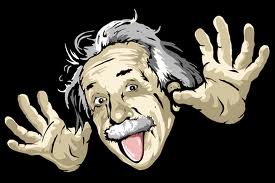Warren Kinston
4. November 2015 09:00

Two big ideas have been the source of endless strife and much debate throughout the ages: “God” and “the State”.
I have not yet posted my work on “the State” because it requires explaining minor modifications of published frameworks. However, our present global predicament pushes me to explain here how these ideas are intrinsic to our personal functioning. We can then consider the consequences for our societies.
Given today's world, a world riven by war both declared and undeclared, we should strive to understand what is happening. More...
About
Warren Kinston
Warren Kinston
9. March 2014 10:00

How could we ever do anything without power? Power empowers: yet we know power is a problem. Social interaction is the human condition—and it cannot possibly be improved without exercising power.
The problem is that it is now a universally recognised truism that power corrupts. Why? Read on for a taxonomic answer! But first let's explore some issues.
Recent academic research suggests that power heightens pre-existing ethical tendencies. But this sort of study actually avoids the power issue. It confuses «having power» with «exerting power». Power in the political or social sense is not just being powerful or having authority, but using it on others. More specifically: “using it to get someone to do what they otherwise would not do”— More...
About
Warren Kinston
Warren Kinston
16. January 2014 10:00
Time, as part of space-time, is one of those basic physical universe realities. Or is it?

I have just read the latest collection of articles from the Scientific American. The accounts were fascinating and rather diverse. But before I comment, let’s review my first engagement with time in the Taxonomy.
You may recall that I identified four experiences or realms of time in, of all places, the production of goodness. There is linear time: the time of the hero. I mean you and me in our daily struggle. Then there is cyclic time: the time More...
About
Warren Kinston
Warren Kinston
1. January 2014 10:00

The scientific culture of the 20th century had a phobia of subjectivity and anything to do with the mind. Not unreasonably, because scientists saw how subjective intrusions disrupt thinking and investigating.
For much of the last century, psychology divided into two battling camps. On the one side were psychoanalytic sympathizers who aligned with Freud's discoveries but not his scientific bent. On the other side were scientific behaviourists who ruled that the mind was non-existent or irrelevant and impossible to study with empirical methods. Most natural scientists were sceptical More...
About
Warren Kinston
Warren Kinston
1. May 2013 09:00
Mastery: it takes willingness. More particularly it depends on learning in a way that uses your willingness to the full. But you have to be willing.
+no+stone+is+too+big+7883578162_820b30d5cf_m.jpg)
I am always amazed at just how often willingness is omitted in academic models and management consulting tools. Even the famous GROW model: Goals, Reality, Options, Will pussyfoots. But willingness cannot be taken for granted and, rather than being synonymous with will, it is the 7th Level in the Will Hierarchy. Consciousness in Western society has not yet fully embraced this highest experience-dominated level (nor the 7th Level of many other THEE frameworks).
Learning is a manifestation of willingness-PH7 and is current located at level-6. Becoming maximally effective, mastering something that is important to you, is surely related to learning. I noticed that mastery can be developed in distinct and contradictory ways. This is precisely what characterizes a Principal Typology in THEE.
A dollop of generous help has let me work out the Principal Typology nested in Learning-L6 within Willingness-PH7. This blog provides some initial thoughts:More...
About
Warren Kinston